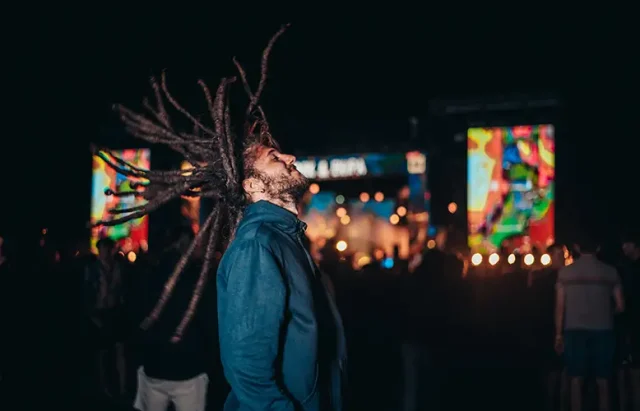
Reggae music has a unique ability to resonate with the soul, and its iconic artists have shaped its vibrant history. From the sun-soaked streets of Jamaica to stages around the world, these musicians have delivered powerful messages through infectious rhythms and heartfelt lyrics. I’ve always been captivated by how reggae transcends borders, bringing people together with its universal themes of love, peace, and resistance. Whether at a reggae festival or listening at home, the music creates a sense of unity and joy.
In this article, I’ll explore some of the most influential reggae artists who’ve left an indelible mark on the genre. Their contributions not only defined reggae but also inspired countless musicians across various styles. Join me as we dive into the lives and legacies of these legendary figures who continue to influence music today.
Overview Of Iconic Reggae Artists
Iconic reggae artists embody the genre’s essence, blending rhythmic grooves with profound messages. Artists like Bob Marley, known for songs such as “One Love” and “No Woman, No Cry,” transformed reggae into a global phenomenon. His music not only entertained but also promoted peace and social justice.
Peter Tosh, another pivotal figure, contributed powerful tracks like “Legalize It” and “Equal Rights.” His bold stance on issues like cannabis legalization and human rights cemented his reputation as a champion for change.
Burning Spear emerged in the 1970s with spiritually infused songs, notably “Marcus Garvey.” His dedication to Rastafari themes has inspired generations by highlighting cultural identity and historical struggles.
Jimmy Cliff, with hits like “The Harder They Come,” played a crucial role in bringing reggae to mainstream audiences. His energetic performances and blend of music styles solidified his role in reggae’s evolution.
These artists, among others, not only shaped reggae’s development but also inspired countless musicians worldwide. Their legacies continue to resonate through their timeless contributions to music.
Early Pioneers Of Reggae
Reggae emerged in Jamaica during the late 1960s, inspired by earlier genres like ska and rocksteady. Key artists played pivotal roles in shaping reggae’s sound and message, laying the groundwork for its global influence.
Bob Marley: The King Of Reggae
Bob Marley remains the quintessential reggae artist. His combination of poignant lyrics and catchy melodies revolutionized the genre. With albums like Catch a Fire and Exodus, Marley promoted themes of love, social justice, and spirituality. “One Love” and “No Woman, No Cry” showcase his powerful messages and unparalleled musicality. Marley’s dedication to promoting Rastafarian culture further solidified his legacy, making him an enduring symbol of reggae worldwide.
Jimmy Cliff: The Multi-Talented Legend
Jimmy Cliff stands out as a versatile artist in the reggae scene. His work spans singing, songwriting, and acting, with iconic tracks like “The Harder They Come” and “You Can Get It If You Really Want.” Cliff’s contributions to the film of the same name helped introduce reggae to a broader audience, effectively bridging cultures. His ability to blend reggae with other genres highlights his unique artistry, allowing him to maintain relevance throughout decades.
Influential Female Reggae Artists
Reggae music features powerful contributions from female artists. Their impactful voices and lyrics resonate with themes of empowerment, love, and resistance, shaping the genre’s landscape.
Rita Marley: More Than Just A Voice
Rita Marley stands as a prominent figure in reggae. Beyond her singing, she actively preserved and promoted Bob Marley’s legacy through the Bob Marley Foundation. Her debut album, “Rita Marley: A Woman’s Perspective,” highlights her emotive storytelling and vocal prowess. Rita’s songs often reflect themes of love, resilience, and social justice, emphasizing her role as a cultural ambassador. Her collaborations with Bob Marley and other artists showcase her versatility and commitment to the genre.
Marcia Griffiths: The Queen Of Reggae
Marcia Griffiths, often referred to as the “Queen of Reggae,” boasts a career spanning over five decades. Known for her timeless hit “Electric Boogie,” she popularized the Electric Slide dance, bridging music and movement. Griffiths’ collaborations with Bob Marley and the I-Threes enriched the reggae sound, integrating harmonious vocals with socially conscious lyrics. She advocates for women’s empowerment within the industry and continues to influence new generations of artists, demonstrating the enduring significance of her work.
Contemporary Iconic Reggae Artists
Reggae continues to thrive through contemporary artists who embody the genre’s spirit and redefine its boundaries. Notable figures like Protoje and Koffee lead the charge, merging innovative sounds with traditional reggae styles.
Protoje: The Modern Revivalist
Protoje stands out as a pivotal figure in the modern reggae landscape. Born in 1981, he combines traditional reggae with elements of hip-hop and R&B, attracting a diverse audience. His 2013 album, The Eight Year Affair, marked his rise, showcasing tracks like “Who Knows” featuring Chronixx, which explores themes of love and resilience. Protoje’s thought-provoking lyrics address social issues, reflecting the same spirit that early reggae artists championed. Collaborations with artists such as Jesse Royal and Koffee highlight his commitment to fostering a new wave of reggae musicians, keeping the genre’s legacy alive.
Koffee: The Rising Star
Koffee, born Mikayla Simpson in 2000, represents the fresh face of reggae with her unique blend of reggae, dancehall, and pop. Her debut single, “Toast,” released in 2019, garnered international acclaim, spotlighting her lyrical prowess and infectious energy. Koffee’s music embodies themes of empowerment and hope, resonating with younger generations. Her 2021 EP, Rapture, solidified her place in the music world, earning her a Grammy Award for Best Reggae Album. Collaborations with artists like Gunna and the support from industry legends further establish Koffee as a significant force, driving reggae into new territories while respecting its roots.
Conclusion
Reggae music continues to evolve while staying true to its roots. The artists I’ve highlighted show how the genre transcends boundaries and resonates with diverse audiences. From the legendary Bob Marley to the innovative sounds of Koffee, each artist contributes to reggae’s rich tapestry. Their dedication to social issues and cultural expression keeps the spirit of reggae alive and relevant today. I’m excited to see how future generations will carry this vibrant legacy forward, ensuring that reggae remains a powerful voice for change and unity in the world.





